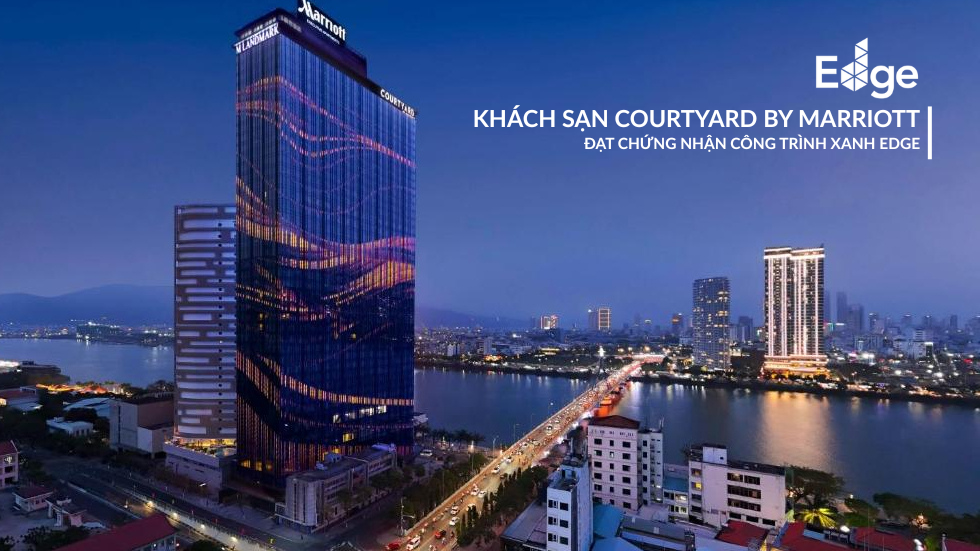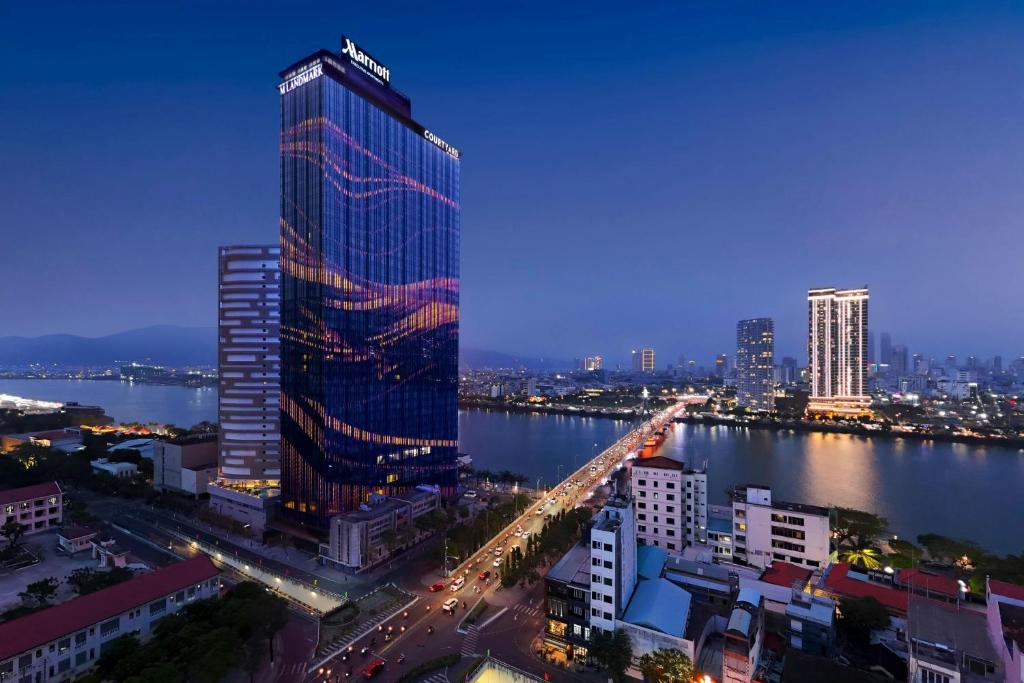
From Central Vietnam’s Sun and Wind to Global Green Standards: Green Tourism Redefines the Future
News
Central Vietnam — the land of sun, wind, and long stretches of coastline — is witnessing a new wave of tourism development, where sustainability is not just a slogan but a core principle. After more than a decade of booming luxury resort projects, the “green tourism” trend is redefining what it means to be a world-class destination.
Green Tourism – From Choice to Inevitable Trend of the Era
Over the past decade, global tourism has entered a strong “green transformation” phase. According to the United Nations World Tourism Organization (UNWTO), the tourism industry accounts for about 8% of global greenhouse gas emissions, primarily from energy used in accommodation, transportation, and infrastructure. This reality forces the industry to transform if it wishes to survive in the Net Zero era.
Major hotel groups such as Marriott, Hilton, Accor, and Hyatt have announced global emission reduction strategies by 2030 and committed to developing or partnering only with projects that achieve green building certifications (LEED, EDGE, etc.). According to the Booking.com Sustainable Travel Report 2024, up to 77% of international travelers say that “sustainability” influences their booking decisions.
No longer a voluntary choice, greening has become a competitive standard. Tourism destinations that wish to attract high-end travelers, especially from Europe and North America, must demonstrate environmental responsibility, energy efficiency, and community well-being.
Central Vietnam – From “Harsh Land” to Emerging Green Tourism Hub
Central Vietnam was once considered a “challenging region” for infrastructure development due to its harsh climate, frequent storms, and droughts. Yet these very conditions are turning the region into an ideal natural laboratory for climate-resilient tourism models.
With abundant solar and wind resources, the region holds strong potential to lead in developing energy self-sufficient resorts — where solar power, rainwater harvesting systems, and locally sourced materials are optimized to minimize emissions.
Projects in Quang Nam, Binh Dinh, Ninh Thuan, Phu Yen, and Thua Thien Hue have begun integrating international green building standards such as LEED or EDGE, combining vernacular architecture with ecological design.
Some projects even apply IoT technology and Building Management Systems (BMS) to monitor energy, water, and emissions in real time — transforming the concept of a “green resort” into a truly “smart resort.”
“Central Vietnam has all the conditions to become a leading green tourism hub in Southeast Asia, thanks to its renewable energy potential and vast, underdeveloped coastal land,”
– Green Tourism Opportunity in Emerging Markets, IFC (2024).
Greening Tourism Infrastructure – From Symbol to Investment Standard
Previously, green building certifications (such as LEED or EDGE) were seen as “branding advantages.” Today, they have become mandatory investment criteria for many international funds.
According to the IFC, a green-certified tourism project can save up to 35% in energy, 30% in water, and increase property value by an average of 8–10%. Moreover, achieving these standards allows developers to access climate finance and green investment sources, such as the Climate Investment Funds or the IFC Green Loan Facility.
In Vietnam, consulting firms like ISD Engineering — recognized by the USGBC as a LEED Proven Provider and by the IFC as an EDGE Premier Service Provider — are supporting numerous hospitality projects in Central Vietnam to implement the “Green Hospitality” model, combining international standards with local identity.
This approach not only delivers financial benefits but also positions Vietnamese tourism brands within the global sustainable supply chain, where ESG (Environmental – Social – Governance) principles are now indispensable.
When “Green” Becomes the New Standard in Hospitality
A standout example is the Courtyard by Marriott Danang Han River — a project awarded the EDGE green building certification by the International Finance Corporation (IFC). The hotel impresses not only with its prime location along the Han River but also with its “green” operational philosophy, emphasizing energy savings, water efficiency, and the use of low-emission materials.
According to IFC’s assessment, Courtyard by Marriott Danang Han River achieved 34% energy savings, 33% water savings, and a 24% reduction in embodied carbon in materials — figures that clearly demonstrate the hospitality industry’s ongoing shift toward sustainability.
This achievement is not only a success for the developer but also the result of close collaboration among specialized green building consultants. In particular, ISD Engineering — the project’s green building certification consultant — played a key role in providing EDGE consultancy, implementing international green criteria, and ensuring the project met energy efficiency, environmental, and sustainable operation standards.
ISD Engineering has contributed to numerous major projects nationwide, from office buildings and commercial centers to hotels and industrial facilities, helping drive the adoption of LEED and EDGE standards in Vietnam. The involvement of specialized consultants like ISD demonstrates that Vietnam is ready to align with global sustainability standards in both the construction and tourism sectors.

Learn more from Courtyard by Marriott Danang Han River Hotel article: [Link]
The Future of Green Tourism in Central Vietnam
With its rich natural beauty and cultural heritage, Central Vietnam is becoming a hub for high-end sustainable tourism. As more green-certified projects emerge, the region is drawing visitors not only with its landscapes and services but also with its image as a “responsible” destination — where every stay contributes to the planet’s well-being.
The integration of tourism and sustainability is not merely a trend — it is the only viable path forward. Projects like Courtyard by Marriott Danang Han River prove that from the sun and wind of Central Vietnam, the country can create internationally recognized green hospitality icons.
ISD Engineering is Vietnam’s leading green building consultancy, pioneering the integration of international sustainability standards into practice. Notably, ISD Engineering is the first company in Vietnam to be simultaneously recognized as a LEED Proven Provider by USGBC/GBCI—affirming its outstanding capability, credibility, and consistent excellence in delivering LEED-certified projects—and an EDGE Premier Service Provider by IFC/World Bank Group, a prestigious designation awarded to organizations demonstrating exceptional expertise and performance in EDGE certification.
Contact ISD Engineering today for consultation on green building certification.
- Posted on
- November 14, 2025

